I've been trying to extract sets of coordinates in the following format:
[-34.0, 23, 0.555] , [3, 4, 5], ....
For the first set, I wish to extract "-34.0", "23", and "0.555". For the second set, "3", "4", and "5".
I've found a way to do so on stackoverflow and through my own experiments on https://regexr.com, but it implies that ".0" and ".555" will also be extracted as subgroups, which I do not wish for.
\[([-]?\d+(\.\d+)?),\s([-]?\d+(\.\d+)?),\s([-]?\d+(\.\d+)?)\]
However, my initial alternatives are not working. Why are these not valid, and how to create a regex within my requirements?
a: Does not register the left bracket on [\d] as a special character and thus associates the right bracket to the [\. component's left bracket
\[([-]?\d+[\.[\d]+]?),\s([-]?\d+[\.[\d]+]?),\s([-]?\d+[\.[\d]+]?)\]
b: Does not register the + sign as a special character
\[([-]?\d+[\.\d+]?),\s([-]?\d+[\.\d+]?),\s([-]?\d+[\.\d+]?)\]
Thank you for your time!
Update:
I have now been made aware of the non-capturing group feature.
First of all - thank you! It did the job I needed.
Second of all - I'm still curious as to why the other options didn't work, so I'll leave this up for the next 24 hours or so, at least.
Update v2:
Questions fully answered. Thank you so much, everyone!


